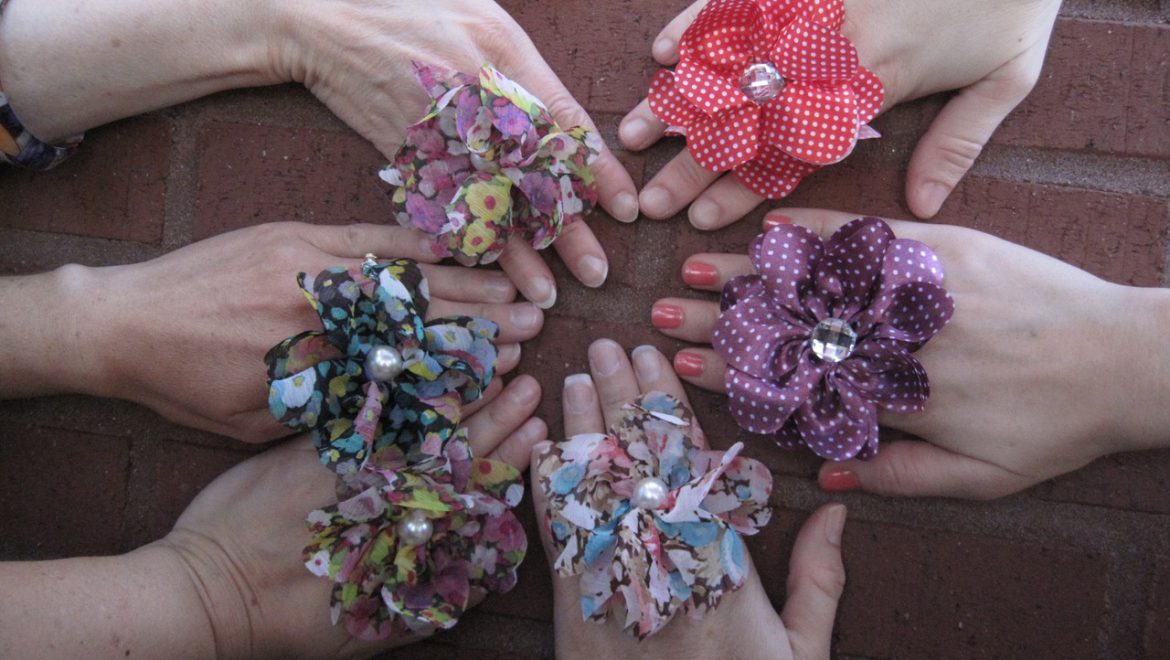
This ceremony was designed to honor the women in our lives and learn from their character traits and contributions. Based on the concept of Eishet Chayil, that it is important to honor and extend gratitude to women, this group ceremony includes an adapted version of the Eishet Chayil poem. In addition to some traditional verses, this poem emphasizes the unique gifts the woman being honored has given to those in her life and provides an opportunity to share them with the group. Structured as a guide for hosts, this ceremony was written by Pat Barr, Rabbi Fredi Cooper and Lori Lefkowitz, and shared on Ritualwell, a project of the Reconstructionist Rabbinical College that provides a platform for creating new Jewish practices and observances.
Kavod Ha’em – Honoring a Foremother
In some families and in some communities, the poem Eyshet Hayil (« Woman of Valor ») is recited every Friday evening as part of the Shabbat table rituals in honor of the women of the family. For some of us, the poem presents an old-fashioned and restrictive idealization of women. But the impulse to take a moment to recognize and value one another, and Jewish women in particular, may well be worth preserving. The following set of questions and ritual moments were developed to create a formal opportunity to honor and preserve someone‘s memory within the family or in another intimate circle (such as your havurah, book group, or organizational chapter).
Pause to honor the memory of someone important to you by recalling her values and some of the details of her life.
The occasion might be a yahrzeit (the anniversary of a death) or a birthday. The person you are remembering could be a family member or friend, a famous person, or someone who worked unrecognized by the outside world.
Many Jewish women, whether or not they were connected to traditional Jewish practices, led lives that exemplified what we recognize to be core Jewish values.
Did the woman whom you are remembering exemplify any of the following concepts in the way she lived her life? Share your answers.
Tikkun Olam—repair of the world. This Jewish idea presumes that each human action affects the state of the universe and that our world can be repaired through social action.
Gemilut Hasadim—acts of kindness. This concept, different from but related to charity or giving to the needy, involves caring for others’ needs through a generous sharing of oneself.
Tzedakah—acts of justice. It is the Jewish way of affirming that sharing material possessions corrects imbalances in society.
Ahavah—love. Love for humanity and/or love for God.
Share the answers to the following questions:
How were you shaped by the values of your honoree?
What did you learn from her?
Which of your own values and ethical choices can you connect to the example of her life?
Everyone recites together:
Today we honor _____________, daughter of ___________ (add other relationships as may be appropriate: mother of and grandmother of _______________ . . .).
Recite this new Eyshet Hayil (A Woman of Valor):
A mother of generations, a woman of valor,
She is precious in the gifts that she gave to our family.
Her children have found trust and truth in these gifts.
We follow in patterns that she taught.
(Here specify the gifts and qualities of the woman you are honoring.)
She is robed in strength and dignity, and she smiles at the future.
She opens her mouth with wisdom, and the teaching of kindness is on her tongue.
We benefit and learn from her wisdom.
May she always be credited for the fruit of her labor and her achievements.
May she live on in glory.
Take a moment to share spontaneous reflections about the person honored and any feelings you would like to express at this occasion.
The Family Tree
Etz Hayim Hi/ « It is a Tree of Life »
Recite:
It is a tree of life to them that take possession of it
A source of happiness to each one who upholds it
Its paths are all pleasant,
And all its paths lead to peace.
This is the Torah of this family and its women.
Restore our history.
Renew our days.
Closing Kiddush
We promise to try to pass this sweetness on to the future generations of our family. We partake of apples, honey, and wine to symbolize the bounty of the women and men of this family.
Blessed are You, our God, Sovereign of the World, who creates the fruit of the tree and the vine.


